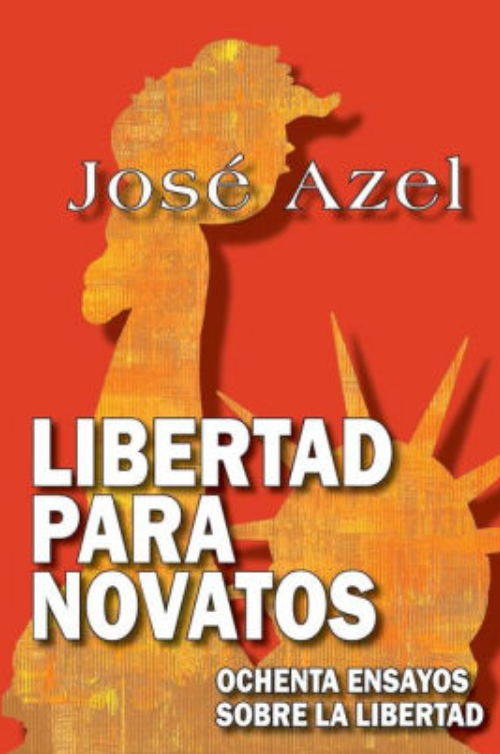| The political scientist, and historian of ideas, Mark Lilla has coined the term tyrannophilia to explain the love of tyrants shown by many intellectuals. Lilla is a self described liberal with book titles such as “The Once and Future Liberal: After Identity Politics,” where he argues that American liberals need to emphasize commonalities in their politics rather than differences of identity. |
|
 |
| Fidel Castro & Pablo Neruda |
|
The “identity politics” that Lilla criticizes are those political positions based on the interests and perspectives of social groups with which people identify such as age, religion, social class, race, sexual orientation, etc. Identity politics are strategic to minorities and civil rights organizations. No wonder that Lilla has been described as a liberal with as many critics on the Left as on the Right.
Psychologist Steven Pinker singles out in “Enlighten Now,” that tyrants have enjoyed the support of intellectuals. He lists Martin Heidegger and Carl Schmitt as Hitler acolytes; Ezra Pound, George Bernard Shaw, William Yeats, Wyndham Lewis as devotees of Mussolini; Shaw and Wells also prized Lenin; Sartre, Beatrice and Sidney Webb, Bertolt Brecht, W. E. B. Du Bois, Pablo Picasso, Lillian Hellman, were admirers of Stalin; add, Michael Foucault, Louis Althusser, Steven Rose, and Richard Lewontin as devotes of Mao. And, most offensive to me as a Cuban, the gushing over Castro of Sartre, Graham Greene, Günter Grass, Norman Mailer, Harold Pinter, Susan Sontag, and others.
Western intellectuals have a long history of loathing their own society and romanticizing its enemies. I am sure my readers can add to this list of tyrannophilicintellectuals.
I can not think of a more offensive passage to illustrate the intellectual’s love of tyrants than the paragraph, cited by Pinker, from Susan Sontag’s “Some Thoughts on the Right Way (for us) to Love the Cuban Revolution.” Sontag, who passed away in 2004, was a beloved intellectual icon of the Left. In the passage below, she is referring to the forced labor camps of the Military Units to Aid Production or UMAP operated by the Castro tyranny in the mid 1960’s. The UMAP were concentration camps for undesirables considered counter-revolutionaries that would not serve in the military service including, Jehovah’s Witnesses, Seven-Day Adventists, Protestant ministers, Catholic priests, and homosexuals. Sontag writes:
- “The Cubans know a lot about spontaneity, gaiety, sensuality and freaking out. They are not linear, desiccated creatures of print-culture. In short, their problem is almost the obverse of ours-and we must be sympathetic to their efforts to solve it. Suspicious as we are of the traditional Puritanism of left revolutions, American radicals ought to be able to maintain some perspective when a country known mainly for dance music, prostitutes, cigars, abortions, resort life and pornographic movies gets a little up-tight about sexual morals and, in one moment two years ago, round up several thousand homosexuals in Havana and sends them to a farm to rehabilitate themselves.”
Among my readers will be some of the 35,000 Cubans forced to work in the UMAP camps under deplorable conditions 10 to 12 hours per day, seven days per week. Reportedly, 507 ended up in psychiatric wards, 72 died from torture, and 180 committed suicide. Before Night Falls, the moving autobiography of Cuban writer Reinaldo Arenas, deals with themes from the UMAP camps.
I am not sure I will ever understand the tyrannophilia of these intellectuals, but Pinker suggests that it may begin with affinity to the ideas of German philologist Friedrich Nietzsche (1844-1900). Nietzsche has had a profound influence on Western philosophy and modern intellectual history. Nietzsche’s concepts of “will to power” and the “superman” (übermensch), who transcends good and evil to realize heroic glory, encouraged the romantic militarism that inspired many of the conflicts of the 20th century including both World Wars.
I favor the explanation of “professional narcissism” offered by Thomas Sowell and Paul Hollander. They suggest that intellectuals may feel unappreciated by the bottom-up mechanisms of liberal democracies. Their disdain for the common man is more in line with tyrannical top-down mechanisms. To professional narcissists, their worth is better appreciated by the tyrants they love.
Please let us know if you  this article. this article. |
|
We welcome your feedback.
Abrazos,
Lily & José
(click on the name to email Lily or Jose) |
|
|
|
|


















